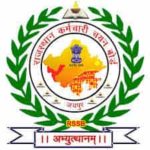Hello and welcome to ExamPundit. Here is a set of Reasoning Quiz for LIC AAO 2016.
Directions (Q. 1-5): Study
the following information to answer the questions:
the following information to answer the questions:
In a certain code ‘rural and urban
divide’ is written as ‘na ku zu la’, ‘gap in rural infrastructure’ is written
as ‘kt la vm pl’, ‘urban planning more important’ is written as ‘ti na cu bu’
and ‘more divide than gap’ is written as ‘pl cu dm zu’ (All codes are two-letter
codes only.)
divide’ is written as ‘na ku zu la’, ‘gap in rural infrastructure’ is written
as ‘kt la vm pl’, ‘urban planning more important’ is written as ‘ti na cu bu’
and ‘more divide than gap’ is written as ‘pl cu dm zu’ (All codes are two-letter
codes only.)
1. What is the code
for ‘and’ in the given code language?
for ‘and’ in the given code language?
1) ku
2) zu
3) dm
4) la
5) na
2. Which of the
following may represent ‘important theory planning’ in the given code language?
following may represent ‘important theory planning’ in the given code language?
1) la bu ti
2) ti bu kt
3) bu pl ti
4) bu xt ti
5) gm ti vm
3. Which of the
following represents ‘more rural’ in the given code language?
following represents ‘more rural’ in the given code language?
1) cu pl
2) vm la
3) la cu
4) cu ti
5) la ku
4. What does the code
‘dm’ stand for in the given code language?
‘dm’ stand for in the given code language?
1) Either ‘gap’ or ‘more’
2) than
3) divide
4) more
5) gap
5. What is the code
for ‘infrastructure’ in the given code language?
for ‘infrastructure’ in the given code language?
1) zu
2) na
3) Either ‘kt’ or ‘vm’
4) pi
5) la
| Solutions – rural and urban divide > na ku zu la … (i) gap in rural infrastructure > kt la vm pl … (ii) urban planning more important > ti na cu bu … (iii) more divide than gap > pl cu dm zu … (iv) Now, from (i) and (ii), rural > la … (v) From (i) and (iii), urban > na … (vi) From (i) and (iv), divide > zu … (vii) From (i), (v), (vi) and (vii), and > ku … (viii) From (ii) and (iv), gap > pl … (ix) From (iii) and (iv), more > cu … (x) Now, from (ii), (v) and (ix) in/infrastructure > kt/vm … (xi) From (iii), (vi) and (x) planning/important > ti/bu From (iv), (vii), (ix) and (x) than > dm
| ||||||||||||||||||||
|---|---|---|---|---|---|---|---|---|---|---|---|---|---|---|---|---|---|---|---|---|
Directions (Q. 6-10):
Study the information and answer the question:
Study the information and answer the question:
Nine friends A, B, C, D, E, F, G,
H and I are sitting around a circular table (with equal distances between each
other) facing the centre, but not necessarily in the same order. D sits second
to the right of F. Only two people sit between D and C. H is an immediate
neighbour of E. Neither H nor E is an immediate neighbour of C or D. Only two
people sit between A and E. G sits third to the right of A. B sits second to
the left of C. Only one person sits between C and E.
H and I are sitting around a circular table (with equal distances between each
other) facing the centre, but not necessarily in the same order. D sits second
to the right of F. Only two people sit between D and C. H is an immediate
neighbour of E. Neither H nor E is an immediate neighbour of C or D. Only two
people sit between A and E. G sits third to the right of A. B sits second to
the left of C. Only one person sits between C and E.
6. Who amongst the
following sits exactly between A and I, when counted from the left side of A?
following sits exactly between A and I, when counted from the left side of A?
1) F
2) H
3) D
4) E
5) C
7. If E and B
interchange their places and so do A and C, then who will sit exactly between A
and E?
interchange their places and so do A and C, then who will sit exactly between A
and E?
1) F
2) G
3) B
4) C
5) I
8. Four among the
given five pairs are alike in a certain way based on the given arrangement, and
thus form a group. Which amongst the
following pairs does not belong to the group?
given five pairs are alike in a certain way based on the given arrangement, and
thus form a group. Which amongst the
following pairs does not belong to the group?
1) B, A
2) I, E
3) A, D
4) G, C
5) H, F
9. Who sits second to
the right of G?
the right of G?
1) I
2) B
3) C
4) F
5) F
10. Which of the
following should come in place of question mark (?) according to the given
seating arrangement?
following should come in place of question mark (?) according to the given
seating arrangement?
A B C E F ?
1) I
2) B
3) D
4) G
5) H
| Solutions – | ||
|---|---|---|
11. How many
meaningful English words can be formed with the letters ‘NOEC’ using all the
letters, but each letter only once
in each word?
meaningful English words can be formed with the letters ‘NOEC’ using all the
letters, but each letter only once
in each word?
1) Three
2) None
3) One
4) Two
5) More than three
| Solutions – ONCE, CONE. Thus only two words can be formed. |
|---|
Regards
function answer(id){
if(document.getElementById(id).style.display == “block”){
document.getElementById(id).style.display = “none”;
}else{
document.getElementById(id).style.display = “block”;
}
}
#a1{display:none;}
#a2{display:none;}
#a3{display:none;}
Team ExamPundit
Sponsored
(adsbygoogle = window.adsbygoogle || []).push({});
Books For 2015 Banking/Insurance Exams
This post was last modified on November 27, 2017 8:58 am





